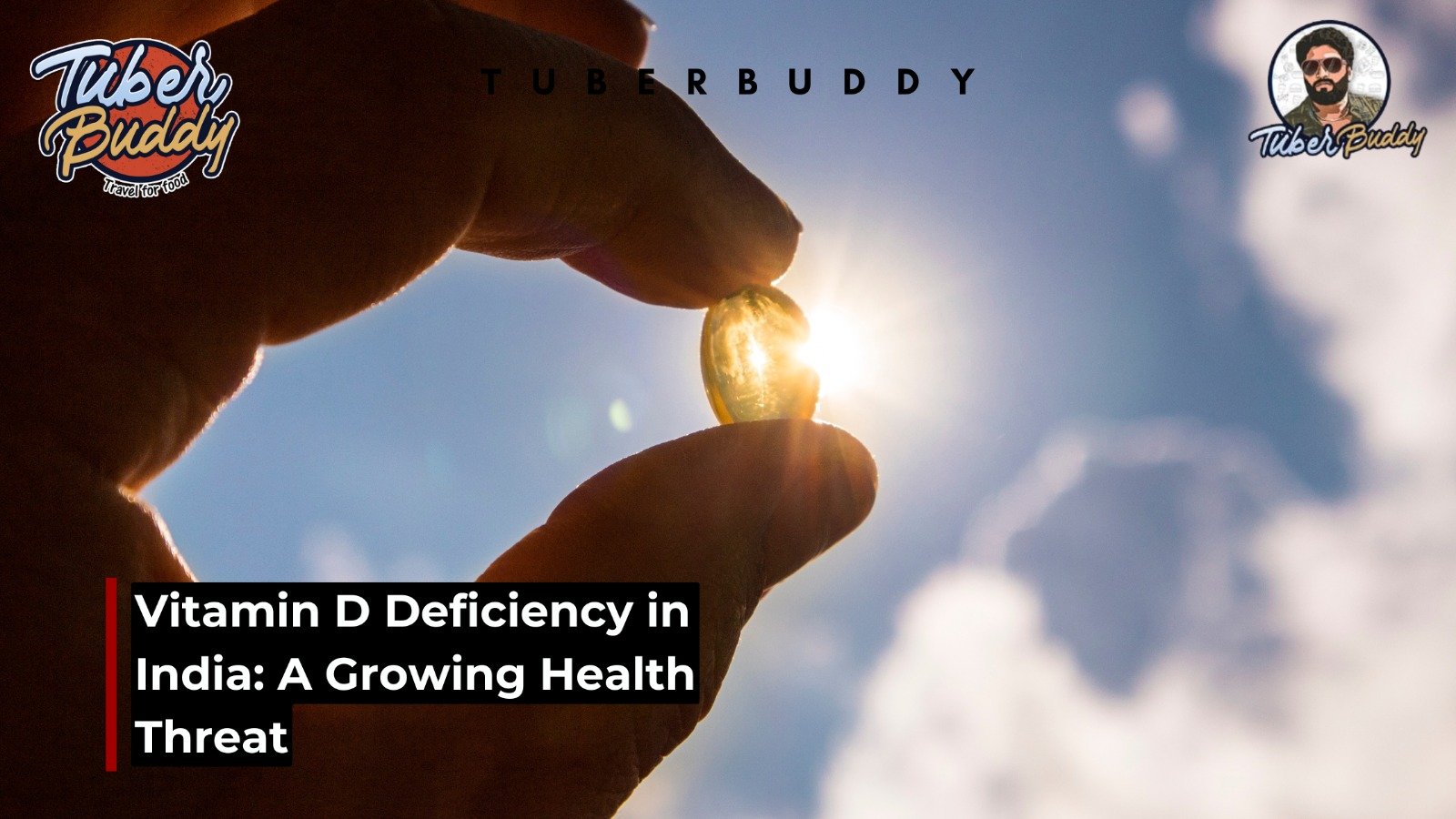Vitamin D deficiency in India : A growing Health Threat

Have you been feeling surprisingly tired, dealing with unexplained common pain, or noticing further hair fall recently? You’re not alone. These symptoms frequently brushed off as diurnal stress or age-related changes, could point to a wide but often overlooked health issue — Vitamin D insufficiency.
Vitamin D Demystified: More Than Just Bone Health
Vitamin D occasionally called the “ sun vitamin, ” is a fat-answerable vitamin essential for overall well-being. It plays a crucial part in
- Maintaining healthy bones and teeth
- Supporting vulnerable system function
- Helping muscles work efficiently
- Reducing inflammation and promoting cell growth
The best way your body makes vitamin D is through direct sunlight still, it can also be attained through certain foods and salutary supplements.
Low vitamin D levels can creep in gradually, often unnoticed until the signs become harder to ignore. Some of the most common warning signs include
- Fatigue and constant frazzle, indeed with proper sleep
- Joint and muscle pain, occasionally incorrect for arthritis
- Hair loss, particularly lacing hair or inordinate hair fall
- Muscle cramps and weakness
Mood swings and depression, are frequently linked to serotonin imbalance.
Still, it’s a good idea to consult a croaker and get a blood test done — especially the 25-hydroxy vitamin D test, which helps measure your situation directly, If you’ve been passing a combination of these symptoms. One test per time is recommended as a preventative measure.
What’s Behind the Vitamin D Crisis in India?
It may surprise you, but around 90 % of Indians are estimated to be vitamin D deficient. Despite the abundant sun, several life and salutary habits contribute to this fussing statistic. These are some of the main reasons.
Limited Sun Exposure
Busy inner cultures, long working hours, and increased use of sunscreen reduce our natural sun exposure. Indeed when we’re outside, apparel frequently limits skin exposure to direct sun.
Low Salutary Input
Vitamin D is set up in veritably many foods naturally. Unless your diet includes specific vitamin D-rich foods, it’s easy to fall suddenly.
Gut Health and Malabsorption Issues
Conditions like IBS, celiac complaint, and Crohn’s complaint can intrude with the body’s capability to absorb fat-answerable vitamins like vitamin D.
Steroid specifics
Long-term use of steroids can impact vitamin D metabolism, further contributing to insufficiency.
How to Boost Your Vitamin D Situations Naturally
Thankfully, vitamin D deficiency isn’t permanent—it’s manageable and reversible. Then’s how you can support healthy situations naturally.
1. Get Sensible Sun Exposure
Spend about 15 to 30 twinkles in the early morning sun( immaculately between 7 AM and 9 AM). Let the sun directly hit your arms, legs, or face — without sunscreen for that short period.
2. Eat Vitamin D- Rich Foods
Include these nutrient-rich options in your diet regularly.
- Adipose fish like salmon and sardines
- Egg yolks
- Liver
- Fortified dairy similar to milk and yogurt
While these foods help, they may not be enough to correct an insufficiency on their own, especially if situations are significantly low.
3.Take Supplements Wisely
still, how and when you take it makes a difference, If your croaker recommends a vitamin D supplement( generally vitamin D3 capsules).
Important Tip Since vitamin D is fat-Soluble, avoid taking it with plain water. Rather, have it with a mess that contains healthy fats — like milk, avocado, or a spoonful of ghee or peanut adulation. This enhances immersion and ensures your body uses it effectively.
Final studies
Vitamin D insufficiency might not feel critical at first regard but left unaddressed, it can lead to serious complications like osteoporosis, frequent infections, and indeed autoimmune issues. Luckily, it’s one of the many health conditions that’s easy to help with just a many life adaptations.
Flash back — your health starts with awareness. However, muscle pangs, or mood changes, If you’re facing unexplained fatigue. Record a monthly check-up, ask your croaker about checking your vitamin D situations, and start taking simple ways to keep them in balance.
After all, occasionally the missing piece to your energy, mood, and impunity is as simple as a little sun and smart nutrition.
Follow TuberBuddy for more simple health tips that make a big difference — because your well-being starts with awareness!
